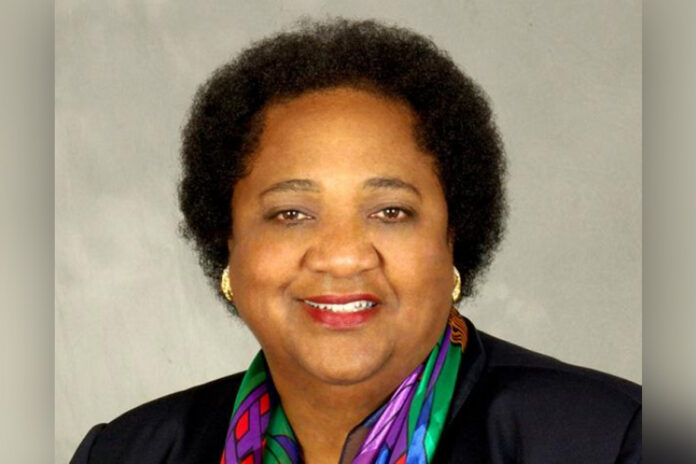
By Assemblymember Dr. Shirley Weber, Chair of the California Legislative Black Caucus
One thing is clear this Juneteenth: change cannot wait. Today, not only do we commemorate Black liberation from slavery, we also commemorate victims of police brutality and the lives lost at their hands.
Our nation is witnessing an uprising of righteous self-expression onto our streets, onto our newsfeeds, and into our discourse. This includes expressions of anger, grief, exhaustion, but most importantly a desire to create real change. And change that is immediate.
The average Black family is financially 10 times worse off than the average white family. We protest economic injustices bolstered by systemic racism. We protest the underinvestment in Black neighborhoods, the disparity in health outcomes, and the criminalization of Black bodies. We protest the killings of unarmed Black people and the systemic inequities legally written into this country’s fabric.
If I have one message for the inspirational people who have taken to the streets to manifest our demands, it is this: change is a movement and a process. And change will happen and is happening because we are making it happen.
So yes, we must voice our anger, and seize this moment to make our demands clear. We must also be conscious that change requires the continued participation of every single one of us.
Some of that energy must come from lawmakers. That’s the reason why I’ve put forward proposals to repeal Proposition 209 and study reparations to Black Californians. Across the country, we are seeing a wave of reforms to address police brutality, whose victims are overwhelmingly Black. Those are crucial legislative steps we must march to combat the impacts of racism and inequality.
And we’ve still got work to do.
To create true change, our civic and political culture needs to reflect and represent this movement’s gravity. Anyone who values justice and equality must be ready to organize, to advocate, to run for office – to vote.
Participating in the 2020 Census is one immediate action every Californian can take right now. Filling out a simple, nine-question form that only asks for basic information like your name, address, age, and race might not feel revolutionary. But, like filling out a ballot, participating in the Census is just as essential as protesting to the health of our democracy and the fight for justice and equity.
An accurate Census is foundational to our democracy and our communities’ growth because the data helps determine how much federal funding and political representation each community receives. Its influence on how dollars are spent in communities around the country means it can help reverse some of the structural inequities by bringing back to our neighborhoods what rightfully belongs to us. For Black Californians, this is one small step toward equality that only comes around every 10 years.
Black communities have been historically undercounted in the Census, dating back to the very first one in 1790. In the 2010 Census, more than 800,000 African Americans were undercounted in the U.S. Totaling billions of dollars for programs for our children and seniors, ranging from health care to education, food programs to housing grants. Participating in the Census alone may not be enough to bring the change our society needs – yet it is still an absolutely necessary component.
We can’t afford to wait another 10 years.
We cannot deny the history of this country. We know this. We also know we must face it and fight it. And because there’s no one solution, we must be a united front and combat systemic injustice from all angles.
Protest, act, organize, vote – and count. Count now.


